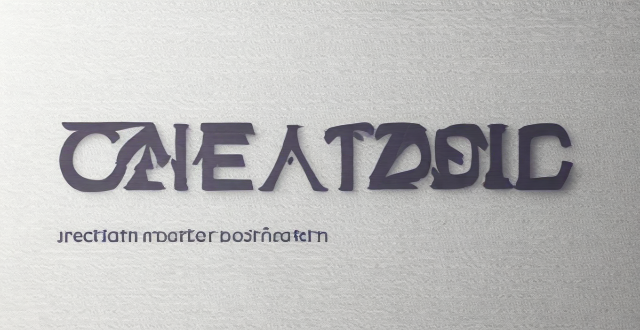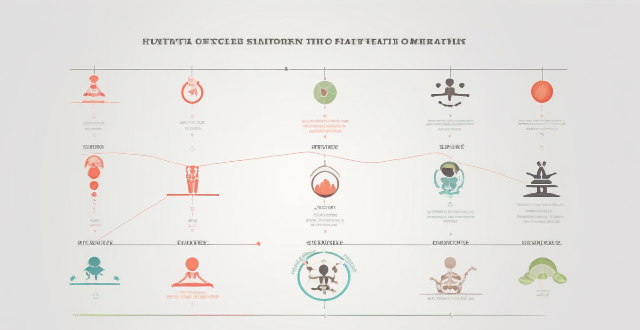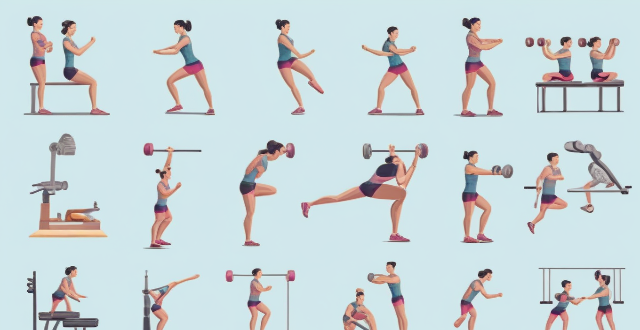Training Protein

Is it necessary to follow a high-protein diet for strength training
A high-protein diet can be beneficial for strength training, but it is not absolutely necessary as long as enough protein is consumed to support muscle growth and repair. Reasons for a high-protein diet include muscle repair and growth, increased metabolism, satiety, and improved recovery. However, the amount of protein needed varies based on individual factors, and general guidelines for intake during strength training are 0.8-1.2 grams per kilogram of body weight, with a source of protein consumed within 30-60 minutes after a workout. High-quality sources of protein should also be chosen.

How much protein do I need for muscle recovery ?
Protein is vital for muscle recovery, especially after intense workouts. Sedentary adults need 0.8g/kg, while athletes require more. Timing and quality of protein intake matter. Tips include dietary variety, supplementation if needed, meal planning, and monitoring intake.

What role does protein play in a healthy diet ?
Protein is an essential nutrient that plays a crucial role in maintaining a healthy diet. It contributes to tissue growth and repair, enzyme and hormone production, immune system function, fluid balance, and energy provision. Consuming a variety of protein sources is important to ensure all necessary amino acids are obtained.

How can I ensure that I'm getting enough protein in my diet ?
Protein is crucial for muscle growth, hormone regulation, and immune support. To ensure you get enough, calculate your needs, choose quality sources like lean meats and legumes, include protein in every meal, snack smartly, read nutrition labels, and consider supplements if needed. Variety and quality are key.

What are the best sources of lean protein for breakfast ?
Including lean protein in your breakfast can help you feel fuller for longer and reduce the likelihood of overeating later in the day. Some of the best sources of lean protein for breakfast include eggs, Greek yogurt, cottage cheese, tofu, nut butters, quinoa, turkey bacon, chia seeds, edamame, and roasted chickpeas. These foods are high in protein and other essential nutrients like calcium, fiber, and healthy fats. They can be prepared in various ways and combined with other ingredients to create a balanced and satisfying breakfast.

How do I balance protein and carbohydrates in my breakfast ?
Balancing protein and carbohydrates in your breakfast is essential for maintaining a healthy diet. Here are some tips on how to achieve this balance: 1. Choose a protein source (e.g. eggs, Greek yogurt, cottage cheese, tofu, nut butter). 2. Add complex carbohydrates (e.g. whole grain bread or toast, oatmeal, fruits, vegetables). 3. Incorporate healthy fats (e.g. avocado, nuts, seeds, olive oil). 4. Consider portion sizes and use measuring cups or a food scale if needed. 5. Plan ahead by prepping ingredients or preparing meals in advance. 6. Be mindful of added sugars and choose whole, unprocessed foods whenever possible.

How can I make my breakfast more protein-packed ?
To make your breakfast more protein-packed, start with a high-protein base like eggs or Greek yogurt. Add nuts and seeds for extra protein and healthy fats. Incorporate legumes such as chickpeas or lentils into savory breakfast dishes. Don't forget dairy products like milk and cheese for added protein. Get creative with grains by combining them with other protein sources like overnight oats with Greek yogurt and nuts. By using these strategies, you can increase the protein content of your morning meals while keeping them interesting and satisfying.

How can I improve my athletic performance through diet
Improving athletic performance through diet involves eating a balanced diet, increasing protein intake, consuming plenty of fruits and vegetables, drinking enough water, avoiding processed foods, eating before training or competition, and considering supplements. A balanced diet includes carbohydrates, proteins, and healthy fats in the right proportions. Protein is essential for building muscle and repairing damaged tissues, while fruits and vegetables are rich in vitamins, minerals, and fiber. Drinking enough water is crucial for staying hydrated during exercise. Avoiding processed foods can prevent harm to your performance and health. Eating before training or competition can provide energy and prevent fatigue. Supplements such as whey protein powder, amino acids, and BCAAs can improve performance but should be taken under the guidance of a nutritionist or doctor.

How do I manage stress while training for a marathon ?
Managing stress is crucial during marathon training. Tips include setting realistic goals, following a structured plan, prioritizing recovery, staying hydrated and nourished, getting enough sleep, practicing mindfulness, seeking support, managing time wisely, and embracing the process. These strategies help minimize stress and make the training journey more enjoyable.

How do I prevent injuries during marathon training ?
Preventing injuries during marathon training is crucial for a successful and enjoyable race. To reduce the risk of injury, runners should warm up and cool down properly, gradually increase training intensity, incorporate cross-training, wear proper footwear, stay hydrated and well-nourished, schedule rest days, listen to their bodies, engage in strength training and flexibility work, and prepare for race day with pacing strategies and course familiarization. By following these guidelines, runners can minimize the chances of getting injured and maximize their potential for success on race day.

How important is rest and recovery during a tennis training camp ?
The text discusses the significance of rest and recovery in a tennis training camp. It outlines six key reasons why taking time to rest and recover is crucial: preventing overuse injuries, enhancing performance, promoting muscle growth and repair, improving immune function, enhancing learning and adaptation, and maintaining motivation and enjoyment. Incorporating adequate rest periods into the training schedule can ensure that athletes stay healthy, perform better, and derive maximum benefit from the camp experience.

What are the physiological benefits of resistance training ?
Resistance training offers numerous physiological benefits, includingResistance training offers numerous physiological benefits, includingurance, improved bone density It is an essential part of any fitness routine for achieving optimal health and wellness outcomes.

Are there any specific training methods that celebrities use for muscle building and fat loss ?
Celebrities use a variety of training methods and nutrition plans to achieve their desired physique, including High-Intensity Interval Training (HIIT), weightlifting, cardiovascular exercise, Pilates and yoga, functional training, and strict nutrition plans. These methods are designed to burn fat, build muscle, improve flexibility and balance, and support overall fitness and mobility. However, individual results may vary depending on various factors.

What is the importance of recovery in sports training ?
Recovery is a crucial aspect of sports training that often gets overlooked. Athletes and coaches need to understand the importance of recovery and make it an integral part of their training programs. Recovery refers to the process of restoring the body's energy reserves and repairing damaged tissues after physical activity. It is essential for athletes because it allows them to prevent overtraining, promote tissue repair and growth, and enhance mental well-being. There are several effective recovery strategies that athletes can incorporate into their training programs, including active recovery, passive recovery, hydration and nutrition, and sleep. By incorporating these strategies into their training programs, athletes can maximize their recovery benefits and improve their performance on the field or court.

How should I adjust my training plan during the off-season ?
The off-season is a crucial time for athletes to recharge, recover, and prepare for the next season. Here are some tips on how to adjust your training plan during this period: 1. Rest and Recovery 2. Skill Development 3. Strength and Conditioning 4. Nutrition and Hydration 5. Mental Preparation 6. Flexibility and Mobility 7. Stay Active in Other Ways By following these tips, you'll be well-prepared for the next season and ready to perform at your best.

What role does muscle strength training play in preventing chronic diseases ?
Muscle strength training can help prevent chronic diseases such as heart disease, stroke, type 2 diabetes, and some types of cancer. It also has many benefits for physical and mental health, including improved cardiovascular health, weight management, better bone health, reduced risk of type 2 diabetes, enhanced mental health, increased self-esteem, improved physical function, lowered blood pressure, and cancer prevention. To get started with muscle strength training, it is important to start low and slow, mix up your routine, rest enough, stay hydrated, eat right, and get enough sleep. With dedication and consistency, you can achieve great results!

Why is critical thinking training important ?
In today's complex world, critical thinking training is essential for effective problem-solving, communication, objectivity, creativity, and future preparedness. It enhances decision-making, collaboration, fairness, open-mindedness, and adaptability to changes. Investing in this training leads to success and positive impacts in various domains.

How long does it take to see results from strength training ?
Strength training is a crucial component of any fitness routine, and understanding how long it takes to see results can help set realistic expectations. Multiple factors influence the timeline for seeing results, including genetics, training frequency, intensity, nutrition, rest, and consistency. In the short term (1-6 weeks), improvements in strength and energy expenditure are common, while mid-term results (6-12 weeks) may include visible muscle growth and enhanced performance. Long-term commitment (3-6 months and beyond) leads to significant muscle development, improved athletic performance, better bone density, and reduced injury risk. Maximizing results requires setting realistic goals, following a structured program, tracking progress, staying consistent, and prioritizing recovery.

What is a good marathon diet plan ?
A good marathon diet plan should provide the necessary nutrients and energy to support an athlete's training and performance during a marathon. It should include a high-carbohydrate diet, protein needs, and healthy fats. A high-carbohydrate diet should provide around 60-70% of total daily calories from carbohydrates, while protein needs should provide around 10-20% of total daily calories. Healthy fats should make up around 20-35% of total daily calories. Good sources of carbohydrates include whole grains, fruits, vegetables, legumes, and low-fat dairy products. Good sources of protein include lean meats, poultry, fish, eggs, nuts, seeds, and plant-based proteins like tofu and tempeh. Good sources of healthy fats include olive oil, avocados, nuts, seeds, fatty fish (such as salmon), and dark chocolate.

What is the ideal meal plan for an athlete's daily routine ?
An athlete's meal plan should include a variety of complex carbohydrates, lean proteins, healthy fats, and fruits & vegetables to support their training goals, optimize performance, and aid in recovery. The ideal meal plan includes breakfast with sustained energy sources like whole grains and fruits; snacks such as trail mix or protein shakes to keep energy levels steady; lunch focusing on lean proteins and leafy greens for muscle repair and nutrient replenishment; afternoon snacks like Greek yogurt or fruit smoothies to avoid energy crashes; dinner emphasizing lean proteins and complex carbs for muscle recovery and glycogen replenishment; and a pre-bed snack with slow-digesting protein and natural sleep aids like cherries or chamomile tea.

What kind of training do I need to participate in a marathon or trail run ?
To participate in a marathon or trail run, it is essential to have a comprehensive training plan that focuses on endurance, strength, speed, and recovery. This includes gradually increasing the distance of long runs, incorporating tempo runs and hill repeats for endurance, core workouts and lower body exercises for strength, interval training and fartlek for speed, as well as prioritizing adequate sleep and nutrition for recovery. Mental preparation techniques like visualization and goal setting can also be beneficial. On race day, pacing strategies, equipment checks, and a detailed race plan are crucial for success.

What are the best training methods for a marathon ?
The article provides a summary of the best training methods for a marathon, including long runs, interval training, hill training, tempo runs, cross-training, recovery weeks, race pace workouts, and tapering. It emphasizes the importance of consistency, patience, and listening to one's body during training.

Are there any specific dietary recommendations for endurance athletes
Dietary recommendations for endurance athletes include consuming a higher intake of complex carbohydrates, adequate protein for muscle repair and recovery, healthy fats for energy, proper hydration, meeting increased needs for micronutrients, timing meals and snacks for optimal performance, and individualizing dietary needs based on personal factors.

What role does nutrition play in a comprehensive sports training program ?
Nutrition is a crucial component of sports training, providingNutrition is a crucial component of sports training, providing repair, boosting immunity, providing energy, supporting recovery and repair, boosting immunity, and maintaining hydration. Athletes should consume a balanced diet with carbohydrates, proteins, and fats for optimal energy production. Pre-exercise meals should focus on carbohydrates, during-exercise snacks can include simple sugars for quick energy release, and post-exercise meals should combine carbohydrates and protein for recovery. Proper nutrition strategies can improve athletic performance and overall well-being.

How often should I attend a tennis training camp to improve my game significantly ?
How often you should attend a tennis training camp to improve significantly depends on your current level and experience, goals, quality of training, personal commitments, physical recovery needs, and budget. Finding a balance that works for you is key to maximizing your chances of improvement.

What are some good sources of protein for a fitness meal plan ?
Including protein-rich foods like chicken breast, salmon, eggs, Greek yogurt, and quinoa in a fitness meal plan can support muscle building and fat loss goals.

How do online teacher training courses compare to traditional in-person workshops ?
This text compares online teacher training courses with traditional in-person workshops in terms of flexibility, interactivity, cost-effectiveness, personalization, networking opportunities, practice and application, technology requirements, certification, scalability, and updates. It concludes that both have unique advantages and limitations, and the choice often depends on individual preferences and the specific goals of the training.

What are some low-calorie protein sources that are also high in fiber ?
Low-calorie protein sources that are also high in fiber include lentils, chickpeas, quinoa, edamame, almonds, chia seeds, black beans, artichokes, and peas. Incorporating these foods into your diet can help you achieve your weight loss goals while providing your body with the nutrients it needs to function properly.

Can strength training help with weight loss ?
Strength training, involving the use of resistance to induce muscular contraction and build strength, can significantly contribute to weight loss by increasing metabolic rate, boosting post-exercise oxygen consumption (EPOC), improving body composition, and enhancing appetite control. Incorporating strength training into your routine, starting slowly and focusing on compound movements while staying consistent, can help achieve weight loss goals.

How do I know if a tennis training camp offers quality coaching ?
When considering enrollment in a tennis training camp, it is crucial to assess the quality of coaching by examining credentials and experience of coaches, coach-to-player ratios, training methods and philosophy, reputation and reviews, facilities and support services, and personalized attention and feedback.